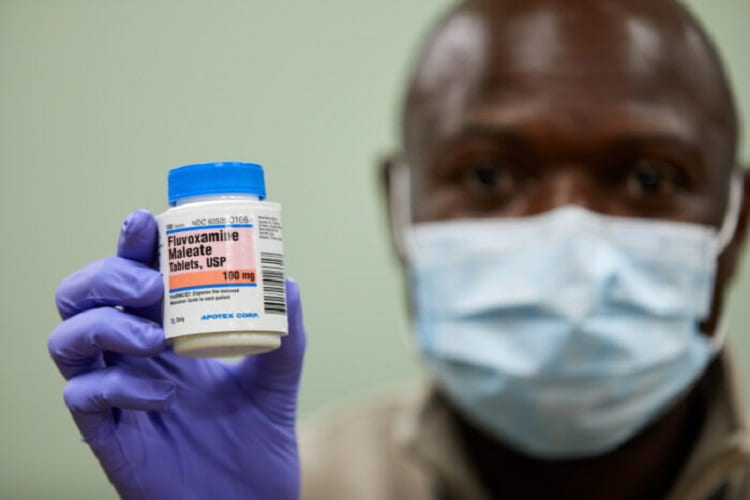In the largest study yet to evaluate a common, low-cost antidepressant as a treatment for COVID-19, researchers from Washington University School of Medicine in St. Louis and from Canada and Brazil have found that the drug fluvoxamine prevents some of the most serious complications of COVID-19, sharply reducing the risk of hospitalization and death.
The study’s results were published recently in the journal The Lancet Global Health.
This trial, conducted in Brazil, confirms results from the first trial of fluvoxamine for COVID-19, which was launched in early 2020 and led by Eric J. Lenze, MD, and Angela M. Reiersen, MD, both psychiatrists at the School of Medicine. Results of that trial were published in JAMA one year ago. The two were interested in the antidepressant because of its anti-inflammatory properties. They also are co-authors on the new study.
The Brazilian study followed about 1,500 patients newly diagnosed with COVID-19. Of them, 741 people received the drug — a 100 mg tablet of fluvoxamine twice a day for 10 days — while 756 received a placebo twice daily. The trial was halted early because those taking the fluvoxamine experienced far better outcomes than those taking a placebo.
Of those taking fluvoxamine, 11% became sick enough to require an extended stay at a COVID-19 emergency facility or be admitted to a hospital, compared with 16% of people who received a placebo.
In a secondary analysis of participants who took at least 80% of their pills, the findings were even more striking: Risk of hospitalization or extended emergency care was reduced by two-thirds, and there was one death among those taking fluoxamine compared with 12 deaths in the placebo group, a reduction in mortality risk of 91%.
“These numbers may represent the optimal benefit that can be achieved when patients adhere to the treatment regimen,” said Reiersen, an associate professor of psychiatry.
“Based on this replication of our findings in such a large study, we believe fluvoxamine should be considered as a treatment for patients at high risk for serious illness or death,” said Lenze, the Wallace and Lucille Renard Professor of Psychiatry and director of the Healthy Mind Lab at Washington University. “Unlike other therapies being developed to treat COVID-19, this drug has a long and well-established record of safety, and doctors could choose to prescribe it off-label for COVID-19 immediately.”
